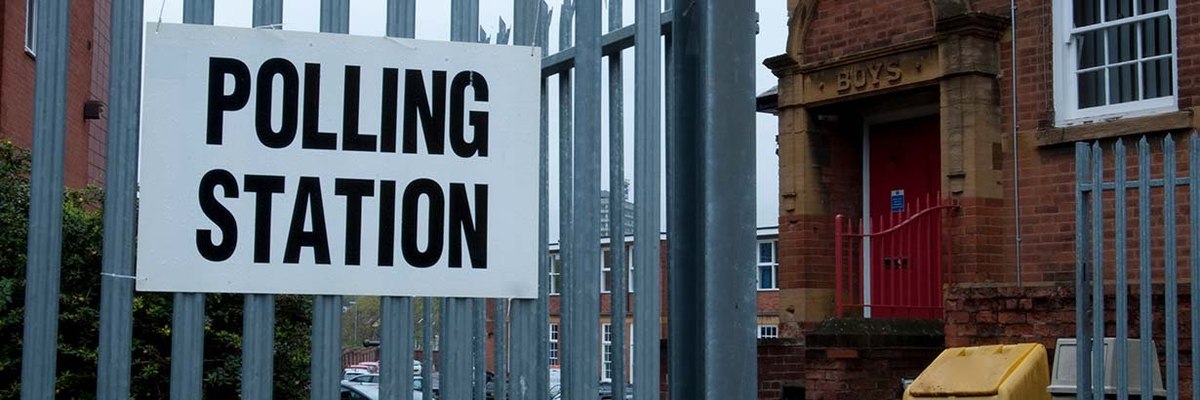Local authorities across the North and Midlands could see significant Labour gains
This Thursday, voters will head to the polls across England for this year’s local authority elections. This is the smallest set of elections in the local authority cycle, but nonetheless throws up some intriguing contests. For the second year running, YouGov have used MRP to project the results of some key local authority battlegrounds.
The MRP method was successfully used by YouGov to predict the 2017 and 2019 general election results, gave a highly accurate projection of the 2023 English local authority elections, and was used to successfully call the 2023 Spanish snap general election. We have also applied MRP more recently to provide updates on the voting landscape on new parliamentary constituencies ahead of the coming UK general election.
YouGov interviewed almost 9,000 voters across 16 English local authorities to model how each area might vote this week. The selected councils represent a mixture of areas covering battleground constituencies ahead of the next general election (for example Walsall, Thurrock, and Lincoln), exciting three-way contests (such as Rugby, Milton Keynes, and Colchester), and some matchups outside of the usual Con-Lab fight (including Solihull, Sheffield, and Hull).
Our key findings is that we expect Labour to be making significant gains across the country, but that stories will emerge from specific local authorities which could leave every party with pleasing news.
The table below shows the YouGov call for each of the 16 councils. Note that the columns named ‘current’ and ‘notes’ reflect the situation relative to the dissolution of the council for this coming election, which is not necessarily the same as the results from 2021 when (the vast majority) of the seats were last contested.
Another caveat should be considered at this time: projecting local authority elections is very difficult. These contests induce a very particular pattern of turnout, and can be influenced by hyper-local factors and campaign effects which even the most statistically sophisticated models won’t necessarily be able to capture.
There is also still a large degree of uncertainty among even those who are telling us they are extremely certain to vote at these contests, with many telling us they “don’t know” who they will vote for on Thursday. If these voters broke heavily in a particular direction, that could shift the results we project today significantly.
The most significant results, according to our data and model, include Labour looking likely to take control of Milton Keynes and Hyndburn, and coming close in each of Tamworth, Thurrock, and Walsall.
As well, North East Lincolnshire is moving significantly toward Labour, and we expect Labour to advance in Rugby. Labour taking control of either seems a little too much of a stretch at this time, however, but is by no means out of the question.
Hull is currently too close to call though a Liberal Democrat hold is more likely than a Labour gain, here. Elsewhere, Stockport also continues to be a closely fought contest between Labour and the Liberal Democrats, and we expect it to remain in No Overall Control.
We expect Labour to hold on to Lincoln, which overlaps significantly with the key Westminster bellwether constituency of the same name, while control of Norwich council is also definitely within reach for Starmer’s party.
But it isn’t all bad news for the Conservatives – we expect them to retain control of Solihull council, and to make gains (versus the situation at dissolution) in Reigate and Banstead.
Elsewhere, we expect little to change in each of Colchester, Solihull, and Sheffield.
Overall, the picture looks set to be a rosy one for Labour as they try to cement their credentials as a government in waiting ahead of this year’s expected autumn general election. The Conservatives are defending a particularly good result from the vaccine-boost induced high of May 2021, and given the situation in the opinion polls it is no surprise that we expect them to struggle against Labour in many of these key contests this week.
Notes
YouGov interviewed over 8,878 British adults between 14th and 29th April 2024 about the upcoming elections, and used Multilevel Regression and Post-Stratification (MRP) to model the estimated vote outcomes per council. MRP models first estimate the relationship between a wide variety of characteristics about people and their opinions – in this case, beliefs their vote intention – in what is called a ‘multilevel model’, which allows us to account for specific area-level effects, as well as background information about respondents themselves. MRP then uses data at the local level to predict outcomes based on the concentration of various different types of people who live there. The model assigns each type of person a probability of voting for each party at the local election (this is the ‘post-stratification’ component), and then estimates the area-level distributions using information about how many of those specific types of voters live in each area. In this instance, 1,000 draws from the posterior distribution of the multilevel model were used to predict the council-level probabilities, which ran for 8,000 iterations across four parallel chains. MRP has been successfully used to predict the outcomes of both the 2017 and 2019 UK general elections, as well as the 2023 Spanish general election.
See voting intention shares in each council area polled here
What are the big issues in your local area, your thoughts on the local elections, and everything else? Have your say, join the YouGov panel, and get paid to share your thoughts. Sign up here.
Photo: Getty






